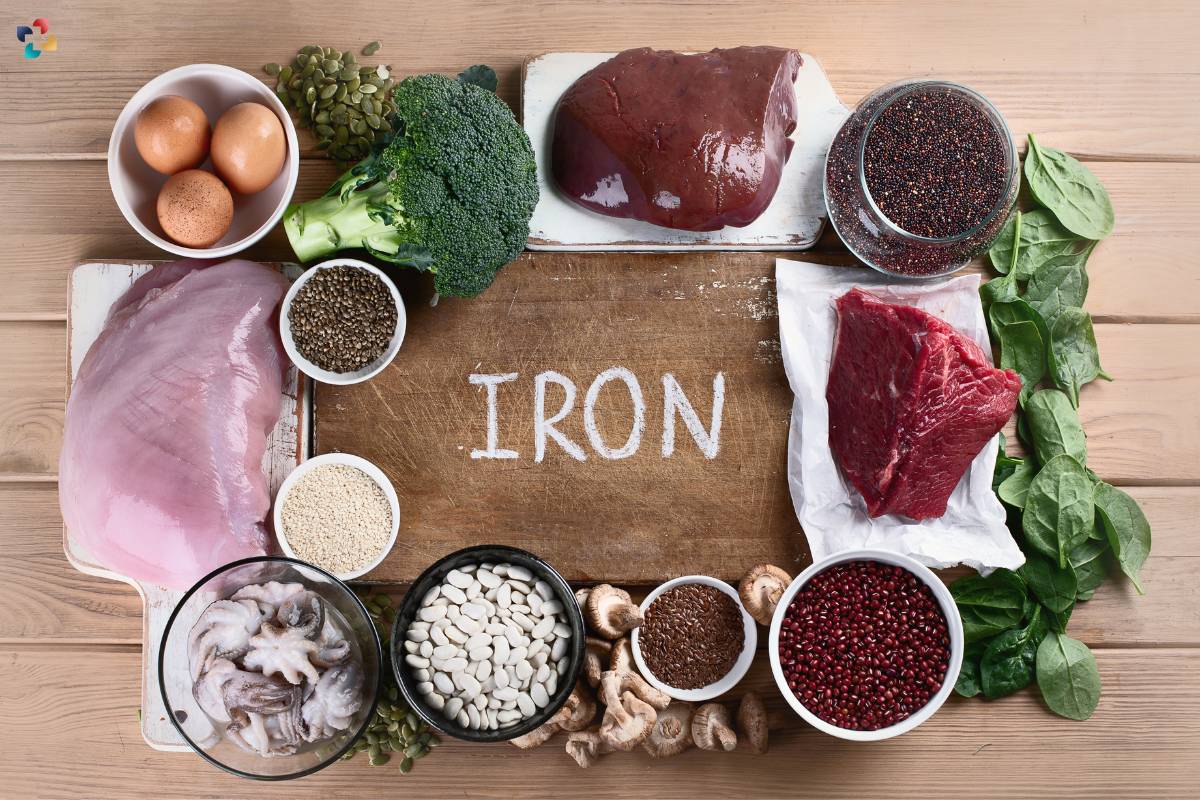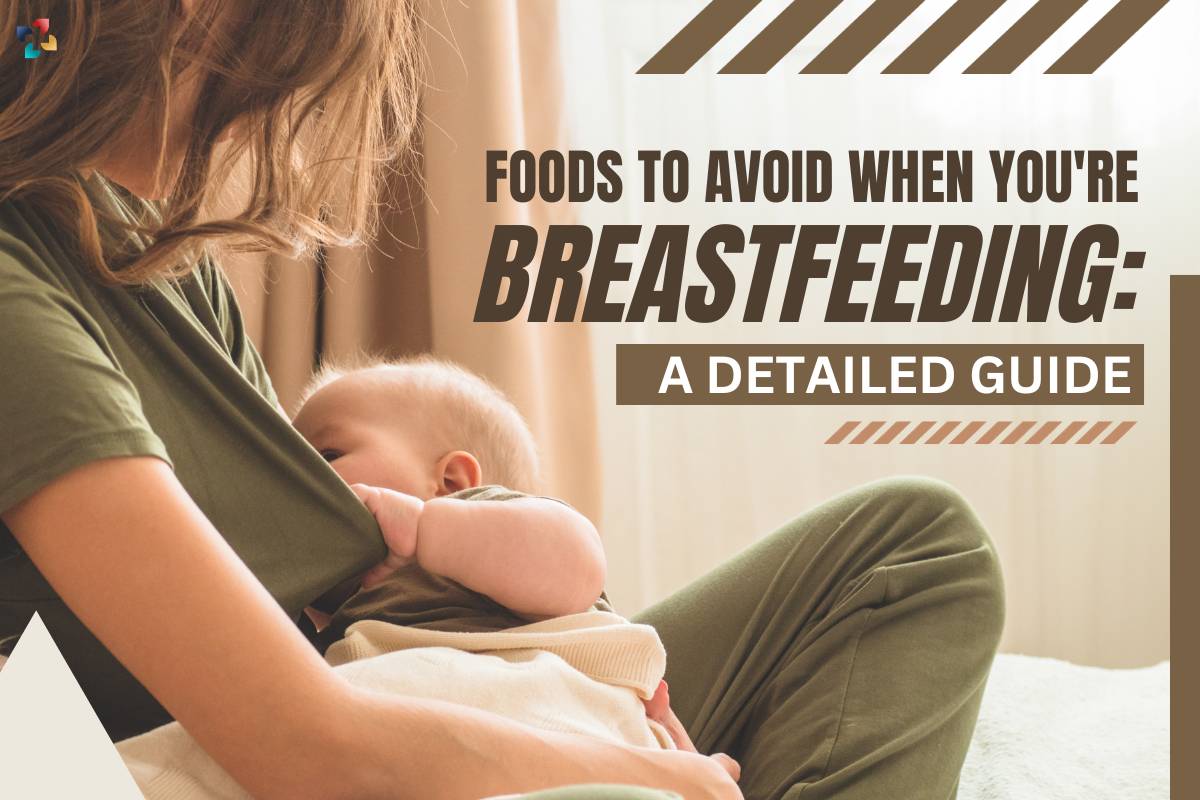The baby growing in a mother’s womb is highly affected by what a mother eats. The diet of a lactating mother should be ideal for the baby’s health. Some foods to avoid when you’re breastfeeding can be best suggested by a gynecologist. Whenever in doubt, you can consult the doctor in order to be clear and away from committing any major mistakes.
A lot of new mothers are in a dilemma about what foods to eat and what to avoid. Without any doubt, a variety of foods can be eaten by lactating mothers. But, every person’s body is different, so it will respond in a different manner. Undeniably, having a healthy diet when pregnant will benefit the baby’s health and the mother’s too. For the baby’s growth to happen normally, basic nutrients should be consumed by the mother of course.
Very few foods fall into the list of not-to-eat category. According to doctors what foods are said as problematic to consume during pregnancy, there is no such stuff. Only the quantities in which specific foods are to be consumed are a bit objectionable.
Let’s have a look at 8 Foods to Avoid When You’re Breastfeeding:
1. Caffeine
While a moderate intake of caffeine is generally considered safe during breastfeeding, excessive caffeine can make its way into breast milk and potentially affect the baby’s sleep patterns and cause irritability. It’s advisable to limit caffeine intake to 200-300 milligrams per day, equivalent to one 12-ounce cup of coffee.
2. Alcohol

Alcohol consumption during breastfeeding can have harmful effects on the baby’s development. Alcohol can impair the baby’s motor skills and cognitive development. It’s best to avoid alcohol entirely while breastfeeding or wait at least 2-3 hours after consuming alcohol before breastfeeding. Alcohol is never recommended. It tops the list of foods to avoid when you’re breastfeeding.
3. Spicy Foods
Spicy foods may cause discomfort for some babies. If you notice that your baby is fussy or has digestive issues after you’ve consumed spicy dishes, consider limiting your intake of spicy foods. Spicy dishes are foods to avoid when you’re breastfeeding.
4. High-Mercury Fish
Certain fish, like sharks, swordfish, king mackerel, and tilefish, are high in mercury, which can be harmful to a developing baby’s nervous system. Opt for low-mercury fish like salmon, trout, and sardines, which provide essential omega-3 fatty acids without the mercury risk. The harm caused to the baby’s nervous system causes life-threatening situations for the baby and the mother. This too falls into the category of a strict no. These are the foods to avoid when you’re breastfeeding.
5. Dairy Products
Some infants may be sensitive to cow’s milk protein. If you suspect your baby is reacting to dairy in your diet (e.g., through excessive gas or fussiness), you may need to eliminate dairy products temporarily and opt for dairy alternatives like almond or soy milk. Not every time, but some infants cannot bear dairy products. So they may come into the category of foods to avoid when you’re breastfeeding.
6. Nuts
Nuts are a fantastic source of healthy fats and protein, but some babies might develop allergies to nuts through their mother’s breast milk. If there’s a family history of nut allergies or if you notice any allergic reactions in your baby, consult a healthcare professional.
7. Citrus Fruits
Citrus fruits like oranges, lemons, and grapefruits can be too acidic for some babies, leading to diaper rash or fussiness. If your baby seems sensitive to citrus, consider reducing your intake. As the baby’s digestive system isn’t fully developed, the acids present in these fruits can harm the baby causing stomach aches. These are again some foods to avoid when you’re breastfeeding.
8. Cabbage and Broccoli

While these cruciferous vegetables are incredibly nutritious, they can also lead to gas and fussiness in some babies due to their fiber content. Cook these vegetables thoroughly to make them easier to digest. Proper cooking and softening them to digest easily, eliminates them from foods to avoid when you’re breastfeeding type.
How does a mother’s diet affect her baby?
A mother’s diet has a direct impact on the composition of her breast milk. Nutrients from the foods she consumes are transferred to the breast milk, making it essential for mothers to consume a balanced diet rich in essential nutrients. Here’s how a mother’s diet affects her baby’s nutrition:
1. Nutrient Transfer
The nutrients from the mother’s diet, such as vitamins, minerals, and healthy fats, are transported into her breast milk, providing the baby with vital nourishment.
2. Flavor Development
The flavors of foods a mother eats during breastfeeding can influence the baby’s palate. It may encourage the acceptance of a variety of flavors when transitioning to solid foods.
3. Allergen Exposure
Certain foods can trigger allergies in some infants. Introducing potential allergens too early or in large quantities may increase the risk of allergies in the baby.
What Your Doctor Wants You to Know About Consuming Appropriate Foods During Pregnancy
Ensuring a healthy diet during pregnancy is just as crucial as maintaining one during breastfeeding. Here’s what your doctor wants you to know about consuming appropriate foods during pregnancy:
1. Balanced Diet
A balanced diet rich in fruits, vegetables, lean proteins, whole grains, and dairy provides the essential nutrients required for your baby’s growth and development.
2. Folic Acid
Folic acid is crucial for preventing neural tube defects in the developing fetus. Your doctor will likely recommend a folic acid supplement and foods rich in folate, such as leafy greens and fortified cereals.
3. Iron-Rich Foods

Iron is vital for both you and your baby’s oxygen supply. Incorporate iron-rich foods like lean meats, beans, and spinach into your diet.
4. Calcium
Calcium is essential for your baby’s developing bones and teeth. Dairy products, fortified plant-based milks, and leafy greens are good sources of calcium.
5. Omega-3 Fatty Acids
Omega-3 fatty acids, found in fatty fish like salmon and walnuts, promote brain and eye development in your baby.
Conclusion:
The foods you consume during pregnancy and breastfeeding play a significant role in the growth of the baby in the womb. During this time, whatever the mother consumes directly affects the baby’s health. So it is always better to consume healthy and nutrition-rich foods. Therefore, it is essential to be mindful of your diet to ensure that your little one receives the best possible start in life. Breastfeeding is a beautiful and essential way for mothers to nourish their infants.
During this crucial period, what a mother consumes directly impacts her baby’s nutrition and overall health. Breast milk is not just a source of nutrition; it’s a potent cocktail of essential nutrients, antibodies, and hormones that help your baby grow and develop while protecting them from infections and diseases.











